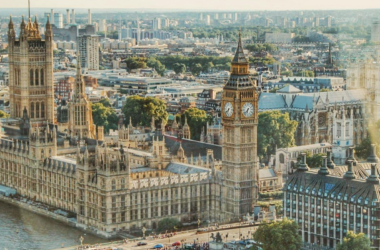TikTok is set to appear before the US Supreme Court on Friday in its final attempt to reverse a ban that could take effect by January 19. This legal battle raises crucial questions about the balance between national security and free speech rights.
The popular social media platform is challenging a law passed last year that mandates TikTok must sever ties with its Chinese parent company or face being blocked in the US. The US government argues that without the required separation, TikTok could be exploited by China to collect user data or influence American politics.
However, TikTok rejects these claims, maintaining that it has been unfairly targeted. The company argues the law infringes upon the First Amendment, affecting the free speech of its 170 million users in the United States. While lower courts have ruled in favor of the government, the case became more complicated last month when President-elect Donald Trump weighed in, calling for a delay in the law’s enforcement to allow for a possible deal.
Analysts have expressed uncertainty about the Supreme Court’s ruling but noted that overturning the previous decision would be rare, even with the incoming president’s support. “When you have a real government interest pitted against a real constitutional value, it ends up being a very close case,” said Cardozo School of Law professor Saurabh Vishnubhakat. “But in such close cases, the government often gets the benefit of the doubt.”
The Supreme Court could issue a decision within days. Last year, Congress passed the law with backing from both Democratic and Republican members, marking the culmination of years of concerns about the app’s growing popularity, especially among younger audiences.
The law does not outright ban TikTok but mandates that tech companies such as Apple and Google remove it from their stores and cease updates, effectively killing the app over time. TikTok has already been banned from government devices in several countries, including the UK, and has faced full bans in other nations like India.
The US government argues that TikTok is a significant national security threat due to the potential for the Chinese government to pressure its parent company, ByteDance, into turning over user data or using the platform for political influence. A December decision by a three-judge appeals court upheld the law, citing China’s history of leveraging private companies for its interests.
TikTok has consistently denied any influence from the Chinese Communist Party and claims that the law violates its users’ First Amendment rights. It has petitioned the Supreme Court to declare the law unconstitutional or suspend its enforcement while a review of the legislation is conducted, arguing the law is based on “inaccurate, flawed and hypothetical information.”




